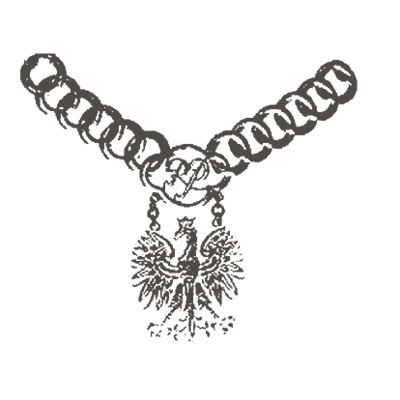Third-party use of a trademark in a prize draw: Permissible use or infringement?
Can a renowned trademark be used to encourage participation in a contest? Is displaying someone else’s trademark as a promotional prize merely informational, or is it trademark infringement? The Court of Justice addressed this issue in its judgment of 11 January 2024 in C-361/22, Inditex. The case involved a promotional campaign in the form of a contest, where the prize was a gift card from a well-known fashion brand. The promoter used the brand’s logo in a depiction of the card without the proprietor’s permission.

WIBOR litigation, part 1: Can the WIBOR benchmark be challenged as the basis for setting variable interest rates?
Variable interest rate loans based on the WIBOR benchmark are a major part of the Polish financial market. For years the WIBOR rate remained at a low level, but it shot up in 2022. The WIBOR 6M stood at 0.25% in January 2021, but by July 2022 it had hit a peak of 7.43%. Currently the WIBOR 6M is a little lower (5.05% as of 10 June 2025), but it has yet to retreat to its earlier low values.

WIBOR litigation, part 2: Can basing variable interest rates on WIBOR be deemed an abusive clause?
Some consumers are attempting via the Polish courts to undermine provisions in credit agreements setting variable interest rates on the basis of the WIBOR benchmark. They hope that the courts will hold these clauses to be impermissible under Civil Code Art. 3851. This would allow their credit agreement as a whole, or the specific WIBOR provisions, to be set aside. But does Polish law empower the courts to examine the alleged abusiveness of such provisions?

Court of Justice: The sanction of free credit must be proportionate
In C-472/23, Lexitor, the Court of Justice of the European Union held that the sanction of “free credit” must reflect the principle of proportionality, and need not be applied simply because of the presence of abusive provisions in the credit agreement having an impact on annual percentage rate.

Interest on capitalised costs of credit, and the sanction of free credit
Following the high-profile judgment of the Court of Justice of 13 February 2025 in C-472/23, Lexitor, the issue of the sanction of “free credit” has become more and more dynamic. In that judgment, the Court of Justice did not address the legality of charging interest on capitalised costs of credit, i.e. charging interest also on the portion of the loan drawn down but earmarked for payment of the costs of issuing the loan (e.g. commissions). This issue will be addressed by the Court of Justice in subsequent cases where Polish courts have decided to seek preliminary rulings.

Control of foreign investments—upcoming changes
In May 2025 a bill to amend the Control of Certain Investments Act was published on the website of Poland’s Government Legislative Centre. The proponent is the Minister of Economic Development and Technology. The bill is not extensive (containing only four articles), but would introduce significant changes for the future.

What does olive oil have to do with wine? When a trademark containing a geographical indication can be registered
A Portuguese company filed for trademark registration by the EUIPO of the word sign “Quevedo Port” for two products: olive oil and wine. Registration was opposed by an association of makers of Port wine, which is a protected denomination of origin. Nonetheless, the EUIPO properly registered the disputed mark. Why?

Environmental criminal law—current status and prospects
Human activity exerts greater and greater impact on the environment. The resulting environmental degradation also poses numerous threats to human life and health. On top of this, the growing generation of waste causes serious ecological problems, but also creates a space for abuses and criminal activity.

Judges in their own case?
It has been a year since I wrote about the practical consequences of the constitutional crisis in Poland. Then I discussed the Constitutional Tribunal judgment of 8 May 2024 (case no. SK 59/21), which held that the inability to challenge an order denying relief from paying court costs (fee on appeal) issued for the first time by the appellate court is unconstitutional. To this day, that judgment has yet to be published, and it appears that the holding is not being respected—likewise for the judgment of 4 June 2024 (case no. SK 140/20) on the calculation of pensions for some 200,000 people who elected to take early retirement.

Guide to the Foreign Subsidies Regulation, part 4: Fines and other penalties
The obligations under the FSR aren’t purely technical. They are formal requirements, and failure to comply can lead to serious legal and financial consequences. Non-notification, submitting incomplete or inaccurate information, or delay in responding to a request from the European Commission can result in a high fine or other monetary penalty, a ban on conducting a concentration, or exclusion from a public procurement proceeding.

Proposed deregulation of pharmaceutical law
Marketing authorisation holders will no longer have to inform the Integrated System for Monitoring Trade in Medicinal Products of the planned place of delivery of medicines, and it will be easier for persons authorised to issue prescriptions to obtain drug samples. The Polish government has approved these deregulatory proposals in the healthcare field, to be achieved by amending the Pharmaceutical Law. There are also plans to modify the requirements for qualified persons.

Guide to the Foreign Subsidies Regulation, part 3: Notification in public procurement
In this section we discuss step by step the key requirements of the FSR for notification of foreign subsidies in public procurement procedures, from the threshold and the scope of information that must be submitted, to responsibility for the data, and practical pointers for contractors and consortia.
